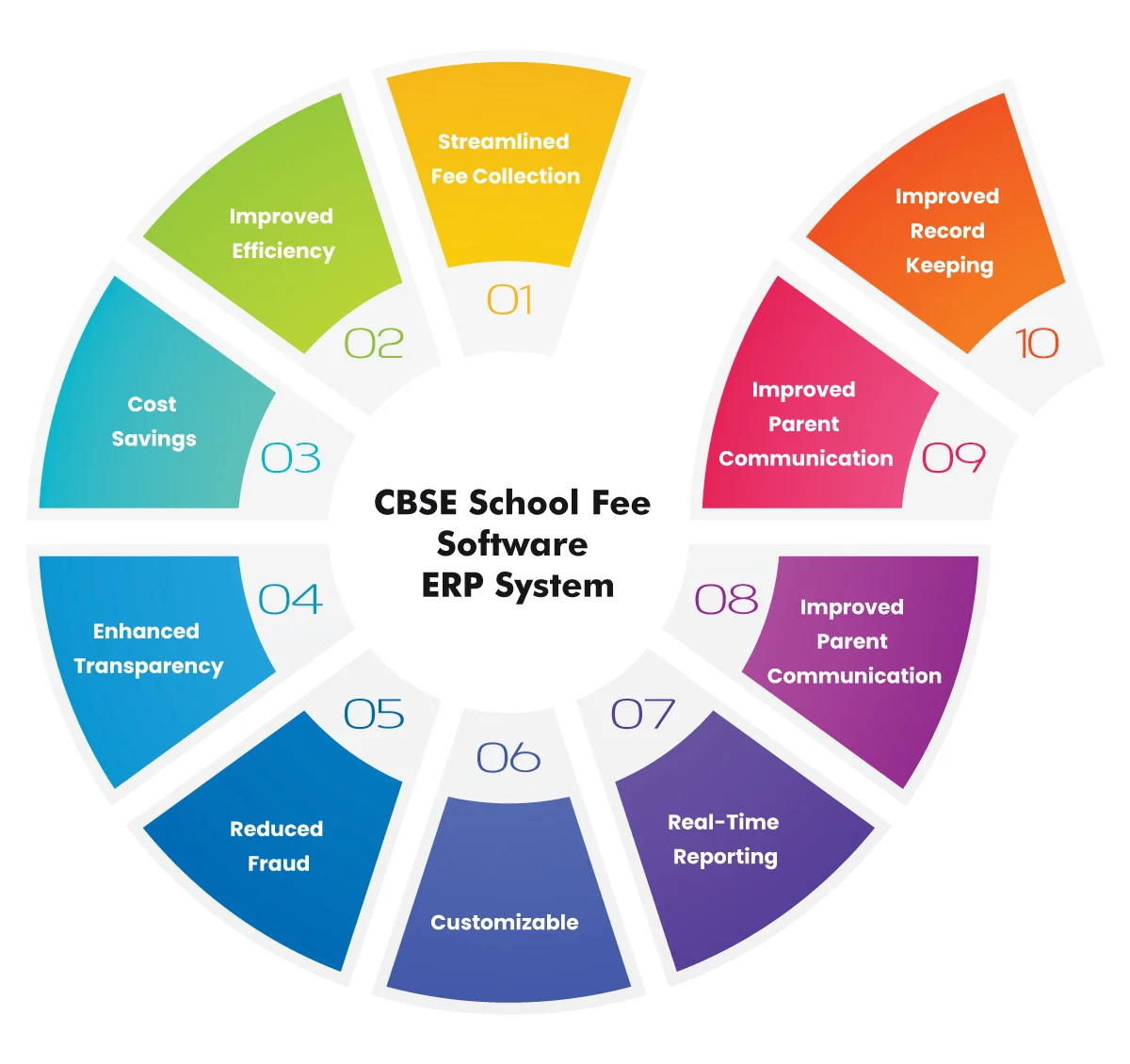
- Student Zone
-
Student Growth serves as a space for students, K-12 educators, parents and school professionals.
The Central Board of Secondary Education (CBSE) is a national level education board in India. CBSE schools are among the most popular educational institutions in the country, and they face unique challenges when it comes to managing their operations. One of the critical areas of concern for CBSE schools is fee management. This is where a CBSE School Fee Software ERP System can help. In this blog, we will discuss the benefits, challenges, and usages of the system from a school's perspective.
Benefits of CBSE School Fee Software ERP System:
Streamlined Fee Collection: The system automates fee collection, making it easier for schools to manage fee-related activities.
Improved Efficiency: With the system in place, schools can process fee payments quickly, reduce errors and improve efficiency.

Cost Savings: By automating fee-related activities, schools can save time and money, which can be invested in other critical areas.
Enhanced Transparency: The system offers parents and students a transparent view of fee-related activities, ensuring trust and credibility.
Reduced Fraud: The system minimizes the risk of fraud, ensuring that the fee collection process is fair and transparent.
Customizable: The system can be customized to meet the specific needs of each school, ensuring that it is tailored to the school's requirements.
Real-Time Reporting: The system offers real-time reporting, allowing schools to monitor fee collection activities and track performance.
Improved Parent Communication: The system improves communication with parents, providing them with timely updates on fee-related activities.
Improved Record Keeping: The system offers an organized record of all fee-related activities, making it easier for schools to keep track of past and current transactions.
Data Analytics: The system offers data analytics capabilities, allowing schools to analyze fee-related activities and make data-driven decisions.
Challenges of CBSE School Fee Software ERP System:
Implementation Cost: Implementing the system can be costly, and schools must be prepared to invest in the technology and infrastructure required to implement the system.
Technical Support: Schools need to ensure that they have access to technical support and maintenance services to ensure the system runs smoothly.
Data Privacy: Schools must ensure that they are compliant with data privacy laws and regulations when implementing the system.
Resistance to Change: There may be resistance to change from staff, parents, and students who are accustomed to the traditional fee collection process.
Training: Schools need to provide adequate training to staff to ensure that they can use the system effectively.
Integration: The system must be integrated with other school systems, such as student information systems and administrative systems.
System Failure: The system may experience technical difficulties, and schools must have contingency plans in place to handle system failures.
Limited Access to Technology: Some schools may not have access to the necessary technology and infrastructure required to implement the system.
Customization: Customization of the system can be time-consuming and may require additional investment.
Time-Consuming: Implementing and maintaining the system requires time and effort from staff and administrators.

Usages of CBSE School Fee Software ERP System:
Fee Collection: The system can be used to automate fee collection, making it more efficient and cost-effective.
Billing: The system can generate and send invoices to parents, reducing the workload of administrative staff.
Payment Processing: The system can process fee payments online, reducing the need for cash transactions.
Record Keeping: The system offers an organized record of all fee-related activities, making it easier for schools to keep track of past and current transactions.
Reporting: The system offers real-time reporting, allowing schools to monitor fee collection activities and track performance, generating reports that can be used to analyze fee-related activities.
Fee Structure Management: The system can be used to manage fee structures, allowing schools to customize fee structures and manage fee collection for different categories of students.
Fee Waivers: The system can manage fee waivers and scholarships, ensuring that eligible students are not left behind due to financial constraints.
Parent Communication: The system can be used to communicate with parents about fee-related activities, sending them notifications about upcoming fee payments, late payments, and other important information.
Fee Refunds: The system can be used to process fee refunds, ensuring that parents are refunded any excess fees paid.
Integration: The system can be integrated with other school systems, such as student information systems and administrative systems, to create a unified school management system.
Conclusion:
In conclusion, a CBSE School Fee Software ERP System can help schools manage their fee-related activities efficiently, improving efficiency, transparency, and accuracy. However, implementing the system can be challenging, and schools must be prepared to invest in technology, infrastructure, and staff training to make the most of the system's benefits. With adequate planning and support, CBSE schools can benefit significantly from implementing a fee management system, freeing up time and resources to focus on other critical areas of education management.